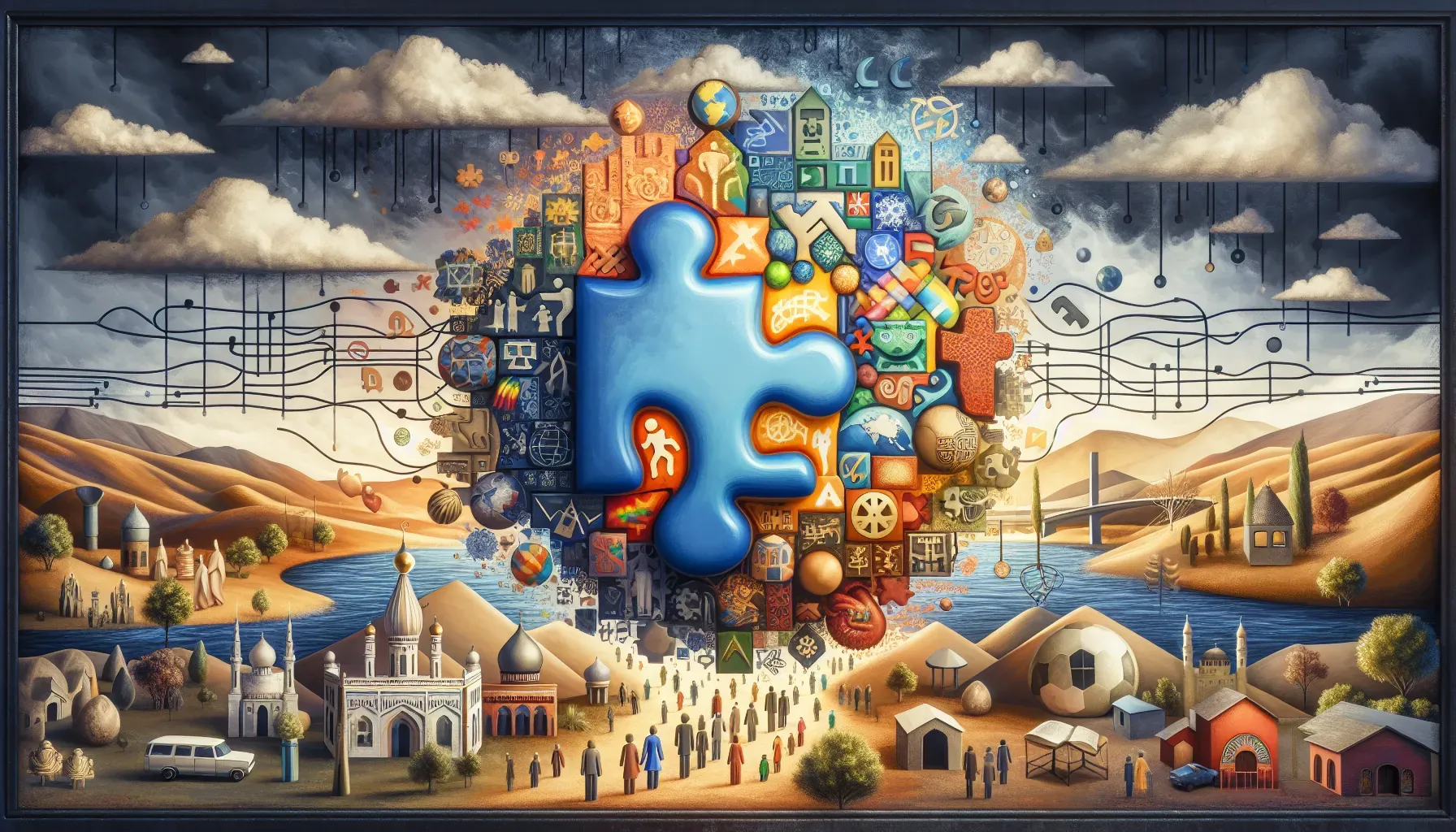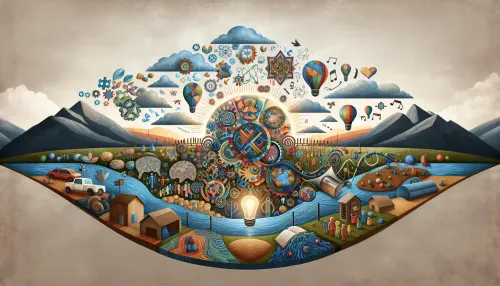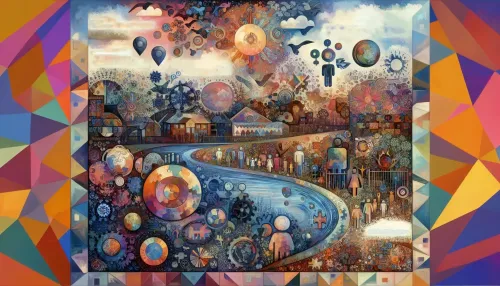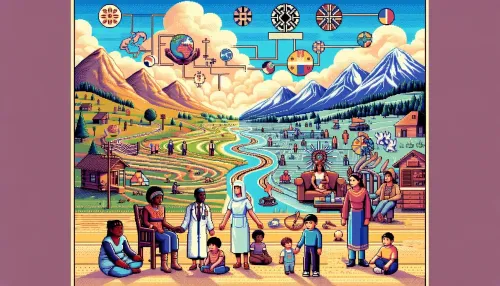Beyond Boundaries: Experiencing Autism Through a Multicultural Lens

Autism is a unique neurological condition that transcends geographical borders, cultural norms, and societal expectations. Understanding autism through a multicultural lens offers invaluable insights into the diverse ways in which different cultures perceive, support, and embrace individuals with autism spectrum disorder (ASD). In this exploration, we delve into the rich tapestry of global perspectives, family dynamics, international voices, and inclusive practices that shape the autism experience across cultures.
Understanding Autism Through a Multicultural Lens
Within the expansive cultural mosaic of our world, autism manifests uniquely across different societies. The perception of autism varies significantly based on cultural beliefs, historical contexts, and traditional practices. In some cultures, autism may be viewed through a lens of stigma and misconception, while others may embrace neurodiversity with understanding and acceptance. It's essential to explore these diverse global perspectives to foster greater awareness and empathy towards individuals with autism.
Global Perspectives on Autism and Culture
Family dynamics play a pivotal role in shaping the experiences of autistic individuals. In many cultures, the responsibility of caring for a child with autism falls primarily on the family. Understanding how different cultures navigate and support autistic members within familial structures provides valuable insights into the challenges and triumphs experienced by these families. From traditional caregiving roles to modern support systems, cultural differences profoundly influence the journey of families living with autism.
Family Dynamics in Supporting Autistic Individuals
The stories of autistic individuals from diverse cultural backgrounds offer profound narratives that illuminate the intersection of autism and culture. Each story is a testament to resilience, unique challenges, and the beauty of neurodiversity within different cultural contexts. By amplifying international voices, we gain a deeper understanding of the multifaceted nature of autism experiences worldwide.
International Voices: Personal Stories of Autism
Despite cultural disparities, multicultural communities are increasingly coming together to advocate for inclusivity and support for individuals with autism. The shared experiences of navigating societal attitudes, accessing resources, and fostering understanding have led to powerful collaborations that transcend cultural boundaries. These collective efforts emphasize the universal goal of creating inclusive environments where autistic individuals can thrive irrespective of cultural influences.
Across different cultures, unique techniques and approaches are employed to embrace and support autistic children. From traditional therapies rooted in ancient practices to modern interventions informed by global research, each culture contributes distinct strategies for nurturing the potential of autistic children. By recognizing and sharing these diverse techniques, we open pathways for cross-cultural learning and innovation in supporting autistic children worldwide.
Related Article: Festive Spectrum: Adapting Cultural Festivals for the Inclusion of Autistic Children
Building Bridges: Multicultural Advocacy for Autism
The experience of autism is influenced by prevailing societal norms and attitudes towards neurodiversity. In conservative societies, where adherence to traditional values is emphasized, autistic individuals may encounter distinct barriers in social inclusion and acceptance. Conversely, liberal societies often strive for greater inclusivity but may encounter challenges related to resource allocation and systemic support. Understanding these nuances is critical in shaping more inclusive societies for individuals with autism.
Cultural Techniques for Embracing Autistic Children
Religious rituals hold profound significance in many cultures, shaping social identities and societal norms. For families raising autistic children, integrating religious practices while navigating neurodiversity can present unique challenges. Culturally sensitive approaches that create space for neurodiverse practices within religious contexts are essential for promoting inclusivity and understanding among diverse communities.
Navigating Autism in Conservative vs Liberal Societies
The narratives surrounding autism in different cultures have evolved over time, reflecting changing perceptions and a growing movement towards empowerment and advocacy. While certain cultures may have historically viewed autism as taboo or attributed it to supernatural influences, there is a positive shift towards destigmatization and empowerment in many global communities. By acknowledging these shifts in narratives, we celebrate progress while acknowledging the work that remains to be done in fostering universal acceptance.
In conclusion, experiencing autism through a multicultural lens not only enriches our understanding but also fosters a global community dedicated to nurturing inclusivity and support for individuals with autism across all cultures. By embracing diverse perspectives, sharing stories across borders, and advocating for inclusive practices, we can bridge cultural differences and create a world where individuals with autism are valued, understood, and empowered regardless of where they call home.
The Role of Religious Rituals in Supporting Neurodiversity
This comprehensive article on understanding autism through a multicultural lens offers profound insights into the varied ways in which different cultures perceive and support individuals with autism spectrum disorder (ASD). The content seamlessly integrates the brand name "HorizonsMind Blog" while resonating with the site's audience interested in the "Autistic Children" niche. The article also includes elements suitable for affiliate marketing and sponsored content while prioritizing SEO optimization for enhanced visibility.
Frequently Asked Questions
Autism is a unique neurological condition that varies in perception across cultures. Some societies may view it with stigma, while others embrace neurodiversity. Understanding these cultural differences is crucial for fostering empathy and awareness towards individuals with autism spectrum disorder (ASD).
Family dynamics play a significant role in shaping the experiences of autistic individuals. In many cultures, families are primarily responsible for their care, navigating challenges and triumphs in supporting their autistic members. Cultural differences greatly impact how families approach caregiving and support systems.
Sharing stories of autistic individuals from various cultural backgrounds highlights resilience and unique challenges they face. These narratives enrich our understanding of autism's multifaceted nature and promote inclusivity by amplifying international voices, fostering empathy, and encouraging cross-cultural learning.
Check Out These Related Articles

Amplifying Diverse Voices: Insights Across Cultures in Autism Care

Cultural Evolution: Visionary Insights Shaping Multicultural Approaches to Autism Support

Reviving Ancient Wisdom: Blending Traditional Practices in Modern Autism Support
